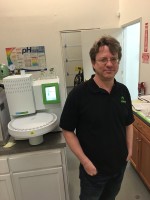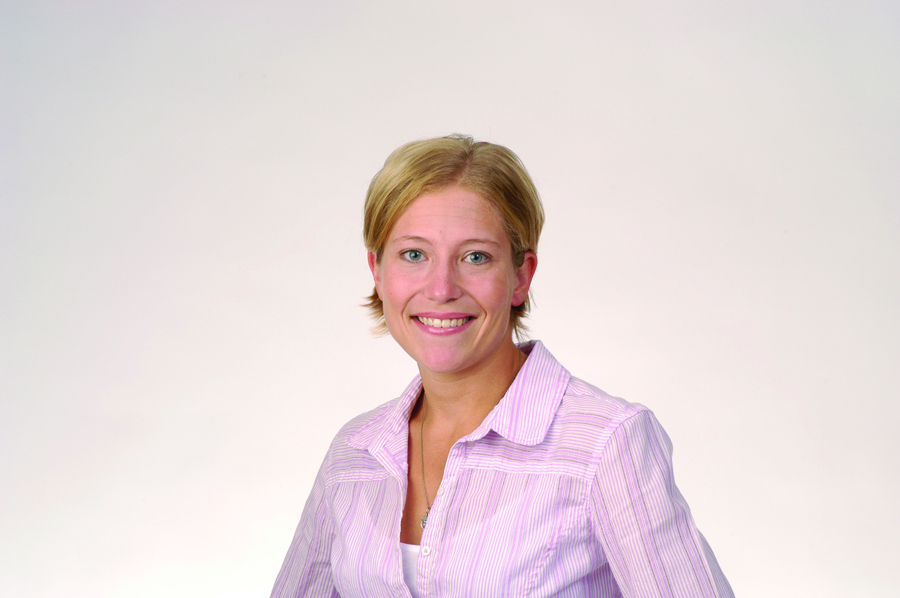 In the first part of this series, we spoke with Michelle Bradac, senior accreditation officer at A2LA, to learn the basics of cannabis laboratory accreditation. In the second part, we sat down with Roger Brauninger, A2LA Biosafety Program manager, to learn why states are looking to lab accreditation in their regulations for the cannabis industry. In the third part, we heard from Michael DeGregorio, chief executive officer of Konocti Analytics, Inc., discussing method development in the cannabis testing industry and his experience with getting accredited.
In the first part of this series, we spoke with Michelle Bradac, senior accreditation officer at A2LA, to learn the basics of cannabis laboratory accreditation. In the second part, we sat down with Roger Brauninger, A2LA Biosafety Program manager, to learn why states are looking to lab accreditation in their regulations for the cannabis industry. In the third part, we heard from Michael DeGregorio, chief executive officer of Konocti Analytics, Inc., discussing method development in the cannabis testing industry and his experience with getting accredited.
In the fourth and final part of this series, we sit down with Susan Audino, Ph.D., an A2LA lead assessor and instructor, laboratory consultant and board member for the Center for Research on Environmental Medicine in Maryland. Dr. Audino will share some insights into method validation and the most technical aspects of laboratory accreditation.

Susan Audino obtained her Ph.D. in Chemistry with an analytical chemistry major, physical and biochemistry minor areas. She currently owns and operates a consulting firm to service chemical and biological laboratories. Susan has been studying the chemistry and applications of cannabinoids and provides scientific and technical guidance to cannabis dispensaries, testing laboratories and medical personnel. Dr. Audino’s interest most directly involves cannabis consumer safety and protection, and promotes active research towards the development of official test methods specifically for the cannabis industry, and to advocate appropriate clinical research. In addition to serving on Expert Review Panels, she is also chairing the first Cannabis Advisory Panel and working group with AOAC International, is a member of the Executive Committee of the ASTM Cannabis Section and has consulted to numerous cannabis laboratories and state regulatory bodies.
CannabisIndustryJournal: What are the some of the most significant technical issues facing an accreditation body when assessing a cannabis-testing laboratory?
Susan: From the AB perspective, there needs to be a high level of expertise to evaluate the merits and scientific soundness of laboratory-developed analytical test methods. Because there are presently no standard or consensus test methods available, laboratories are required to develop their own methods, which need to be valid. Validating methods require a rigorous series of tests and statistical analyses to ensure the correctness and reliability of the laboratory’s product, which is– the test report.
CIJ: When is method validation required and how does this differ from system suitability?
Susan: Method validation is required whenever the laboratory modifies a currently accepted consensus or standard test method, or when the laboratory develops its own method. Method validation is characterized by a series of analytical performance criteria including determinations of accuracy, precision, linearity, specification, limit of detection, and limit of quantitation. The determination of system suitability requires a series of deliberate variations of parameters to ensure the complete system, that is all instrument(s) as well as the analytical method, is maintained throughout the entire analytical process. Traditionally, method validation has been referred to as “ruggedness” and system suitability as “robustness.”
CIJ: What are the most important aspects of method validation that must be taken into account?
Susan: In keeping with the FDA guidelines and other accepted criteria, I tend to recommend the International Conference on Harmonization (ICH), particularly Q 2A, which is a widely recognized program that discusses the pertinent characteristics of method validation. This include: method specification, linearity, range, accuracy, and precision (e.g., repeatability, intermediate precision, reproducibility). As mentioned earlier, system suitability is also a critical element and although related to method validation, does require its own protocol.
CIJ: What three areas do you see the laboratory having the hardest time with in preparing for accreditation?
Susan: My responses to this question assume the laboratory employs appropriate instruments to perform the necessary analyses, and that the laboratory employs personnel with experience and knowledge appropriate to develop test methods and interpret test results.
- By and large, method validation that is not appropriate to the scope of their intended work. Driving this is an overall lack of information about method validation. Oftentimes there is an assumption that multiple recoveries of CRMs constitute “validation”. While it may be one element, this only demonstrates the instrument’s suitability. My recommendation is to utilize any one of a number of good single laboratory validation protocols. Options include, but are not limited to AOAC International, American Chemical Society, ASTM, and ICH protocols.
- Second is the lack of statistically sound sampling protocols for those laboratories that are mandated by their governing states to go to the field to sample the product from required batches. Sampling protocols needs to address the heterogeneity of the plant, defining the batch, and determining/collecting a sample of sufficient quantity that will be both large enough and representative of the population, and to provide the laboratory an adequate amount from which to sub-sample.
- Third, sample preparation. This is somewhat intertwined with my previous point. Once an appropriate sample has been collected, preparation must be relevant to the appropriate technology and assay. It is unlikely that a laboratory can perform a single preparation that is amenable to comprehensive testing.














